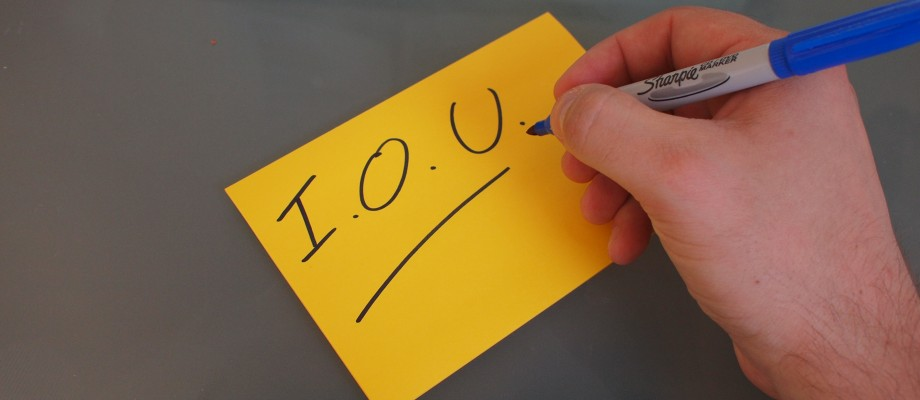The Regents met last Thursday, January 20, for the final day of their 3-day meetings. At public comments, speakers presented on fossil fuel usage, nurse staffing, the proposed UC-Davis hospital tower, climate change, departmental anti-Israel statements, the Hawaiian telescope, COVID-related leave, staff pay, the Green New Deal and bicycling, and student housing affordability and need for remote options.
At the end of the meeting, there were tributes to Regent Lansing who is leaving the board. There was also considerable procedural discussion surrounding the UC-Davis hospital tower proposal and community benefits.
Excerpt from the Daily Cal: ...UC Health Executive Vice President Carrie Byington said she expects cases of the omicron variant to peak next week. She commended UC Berkeley’s efforts to provide rapid testing for students and noted that high vaccination rates and isolation practices across all campuses have controlled the number of positive cases thus far.
The regents also discussed sustainability efforts during the joint session of the Academic and Student Affairs and the Finance and Capital Strategies committees. UC Office of the President Associate Vice President of Energy and Sustainability David Phillips gave a presentation highlighting the university’s progress on its goals and the environmental impact on social justice. “Just as the global pandemic has shined a spotlight on structural inequities and health care outcomes, it’s become increasingly clear that climate change is a public health and social justice issue,” Phillips said at the meeting.
Some of the university’s goals include long-term plans for emission reductions, climate neutrality, expanded use of clean electricity, sustainable food sourcing, water conservation and more. Among other campuses making their own efforts toward these goals, UC Berkeley has hired five faculty members specifically to further its mission toward environmental justice and climate equity.
Full story at https://www.dailycal.org/2022/01/21/uc-board-of-regents-discusses-faculty-wages-sustainability/.
From the Daily Nexus: The University of California Board of Regents approved pay raises for all nine UC chancellors with undergraduate student bodies on Jan. 20, with one no vote, one abstention and 16 approvals. UC Santa Barbara Chancellor Henry T. Yang, who currently makes $451,362 per year, received a 28.4% raise and will now make $579,750 per year beginning in March of the 2022-23 academic year.
“Nine of the ten UC chancellors have base salaries below the 50th percentile of the market for their positions. Of those nine, six have base salaries that are below the 25th percentile of the comparative market,” a discussion item outlining the proposed increase stated. The proposed increase would raise base salaries for all chancellors with salaries below the 50th percentile of the market for their position — with increases between 6% and 26% — and spend $800,432 in total. “To me, this was an issue of pay equity,” Regent Jonathan Sures said in the Jan. 19 Governance committee. “We have an obligation to pay our people well and we should pay our chancellors well.”
The pay raise was first deliberated in the Governance committee, where committee members voted 6-4 to have the raises occur all at once, rather than in 2-3 increments over a 16-month period as originally listed, and voted 9-1 to approve the raises. “We are lucky enough to have some of the most diverse group of chancellors of any public university system … but we need to pay them fairly. This is the first step in doing that,” Sures continued...
During the Jan. 20 Regents board meeting, Dr. Carrie L. Byington, executive vice president and head of University of California Health, presented information on the omicron variant to the Regents. Currently, all UCs are online until the end of January due to rising cases across the state. “We are in the midst of one of the most significant surges we have seen during the pandemic,” Byington said, noting that over 98.5% of COVID-19 isolates in the United States are now due to the omicron variant.
Byington shared data on COVID-19 vaccination rates amongst the general population and UC students and faculty, noting that in every campus area, vaccination rates were far higher among UC affiliates. “Vaccine mandates work,” she said. “Vaccine hesitancy and vaccine misinformation is one of the most deadly issues we face right now.”
Byington added that aside from global vaccination efforts, increased masking, better testing and data infrastructure, and increased childcare and sick leave would help save lives during the omicron surge. As the winter surge kept growing between December and January, all UCs switched to remote learning for the first two weeks; however, while a majority of UCs decided to continue remote learning through January, UC Santa Barbara decided to allow instructors to determine whether or not classes should be in-person or online. “Students deserve more than a two-week period to rearrange their lives. Slow decision-making and communication harms not only students but their families,” UC Student Association President and UCSB External Vice-President of Statewide Affairs Esmeralda Quintero-Cubillan said in an address to the Regents on Jan. 20 in regards to the transition.
Quintero-Cubillan also informed Regents that at campuses without medical schools — like UCSB, UC Santa Cruz, UC Riverside and UC Merced — there is a shortage of medical resources to deal with the omicron variant at their campuses. “I routinely see standstill lines stretching along the block at our sole testing center at UCSB, with appointments often being booked weeks in advance,” they continued. “A UC student’s access to testing and vaccines should not depend on the location or prestige of their campus.”
The Regents convened on Jan. 19 during the Academic and Student Affairs Committee to recap changes to financial aid in the UC system at the federal and state levels. On the federal level, changes will be influenced by the Free Application for Federal Student Aid (FAFSA) Simplification Act passed by Congress in December 2020.
According to the discussion item, the biggest change is the Expected Family Contribution — an index number used in the FAFSA to calculate eligibility for financial aid by measuring parental contribution — will be replaced by the Student Aid Index (SAI). The measures function roughly the same, but the SAI will allow the index number to be below zero, meaning the UC can grant an additional $1,500 in financial aid to students, even if it exceeds the total cost of attendance.
As for changes on a statewide level, Cal Grants will change through the new Community College Entitlement Program, which will allow California Community College (CCC) students to qualify for a Cal Grant while attending a CCC, and bring the Cal Grant with them when transferring to a UC. Additionally, the Middle Class Scholarship program is receiving a proposed budget increase from $117 million to $642 million, with the goal of addressing the total cost of attendance for those who are not receiving tuition coverage at a UC or a California State University (CSU).
The Regents also discussed the current legal challenges impacting the Deferred Action for Childhood Arrivals (DACA) program and presented steps forward in the UC’s continual support of undocumented students in higher education. The DACA program, first established in 2012, grants temporary protected status to youths who came to the United States as children without documentation. Since July 2021, the program has been effectively suspended following a federal court injunction that ruled DACA unlawful and prevented the United States Department of Homeland Security (DHS) from processing new applications.
Before the federal injunction, the DHS had begun to process DACA initial applications for the first time from the UC Immigrant Legal Services Center with the help of pro bono counsel. According to María Blanco, executive director of the UC Immigrant Legal Services Center, the UC submitted 230 initial applications, but only 37 were granted. The remaining applications were never processed, according to Blanco. As a result, the use and availability of DACA across UC campuses have been diminishing.
Provost and Executive Vice President for Academic Affairs Michael Brown advocated on behalf of undocumented students during the meeting. “We are running out of DACA students, but we still have undocumented students, and they are going to need support … We do have a moral obligation to these students, and they’ve been in limbo for quite a while here now,” Brown said.
In an effort to better support students with disabilities across the UCs, UC Berkeley Vice Chancellor for Student Affairs Stephen Sutton and UC Davis Vice Chancellor for Student Affairs Pablo Reguerín are co-chairing the first-ever UC system-wide advisory workgroup to create a more inclusive community for students with disabilities. “Workgroup members will review existing policies and practice, and analyze data to gain a deeper understanding of the needs and experience of students with disabilities and make recommendations on policy and programmatic improvements to Provost Brown,” Sutton said.
The workgroup will explore three broad areas: the academic culture, the overall campus climate and the physical infrastructure of each UC campus. “Our work will take into consideration the intersection of identities for students with disabilities and recognize the diversity of students with disabilities and their needs,” Sutton said. “Our work will require close collaboration with key stakeholders, including the academic senate, campus experts from disability student service centers and other units serving students.”
Sutton emphasized that the aim of this advisory workgroup is to work toward providing more “ethical experiences” for all students with disabilities within the UC. “Our goal is to move beyond ADA [Americans with Disabilities Act] compliance and to use that compliance as the floor, not the ceiling,” Sutton said.
The committee also discussed the UC as a Hispanic and minority-serving institution. Five UC campuses —Irvine, Merced, Riverside, Santa Barbara and Santa Cruz— have been officially designated Hispanic-Serving Institutions (HSIs), and the committee aimed to discuss what the designation should truly entail.
“Determining whether a campus is considered Hispanic- and minority-serving should also encompass efforts to improve retention, accelerate graduation rates, and increase representation in post-baccalaureate pathways for Chicano(a)/Latino(a) and other students from underrepresented groups,” the discussion item read.
The Regents evaluated its successes and shortcomings on Jan. 19 in serving its transfer student population, who are present across UC campuses at a ratio of one transfer per two incoming in-state first-years. The UC heavily relies on its community college to UC transfer pathway. Around 94% of transfer students enrolled at a UC come from a CCC, with roughly a 75% acceptance rate for these students.
Brown noted a steady increase in the number of transfer students who apply to, gain admittance to and enroll at UC institutions over the past five years. In addition, transfer students have a four-year graduation rate of 88% — an indication of their success, according to Brown. “This is a promising trend, especially for UC’s equity goals, because transfer students are more likely to be the first in their family to attend college, come from historically underrepresented groups and receive Pell grants,” Brown said.
During the meeting, UCSC student Colm Fitzgerald urged the board to improve the representation of community college students from rural areas in California. “The UC system all but neglects colleges like San Joaquin Delta College. At a previous meeting of this body, as a member of the audience, I heard a frightening statistic. 40% of transfer students come from nine colleges — nine of 116 [CCC]. I would be shocked if San Joaquin Delta College was on that list,” Fitzgerald said. “This system must do a better job of targeting campuses like that of Delta so that students … who clearly are capable of success are not left behind.”
Regents Art Torres and Cecilia Estolano both responded in support of Fitzgerald’s recommendation. “I was very moved by that presentation because I was a transfer student from East Los Angeles College to UC Santa Cruz in the old, medieval days of 1966. I’m disappointed that not much has changed since then given these new statements,” Torres said. “One of the things that Regent [Janet] Reilly and I are committed to is to reaching out to rural community colleges more so to see how we can recruit young people from those areas because they are underrepresented.”
Full story at https://dailynexus.com/2022-01-20/chancellors-get-pay-raise-recap-of-uc-regents-january-2022-meeting/.
As always, we preserve the Regents' recordings indefinitely, since the Regents delete them - for no apparent reason - after one year. Links can be found at:
https://archive.org/details/regents-board-1-20-22
Board: https://archive.org/details/regents-board-1-20-22/Regents-Board+1-20-22.mp4
Joint meeting of Academic and Student Affairs and Finance and Capital Strategies: https://archive.org/details/regents-board-1-20-22/Regents-Joint+Meeting_+Academic+and+Student+Affairs+%26+Finance+and+Capital+Strategies+Committees%2C+Board+1-20-22.mp4

















